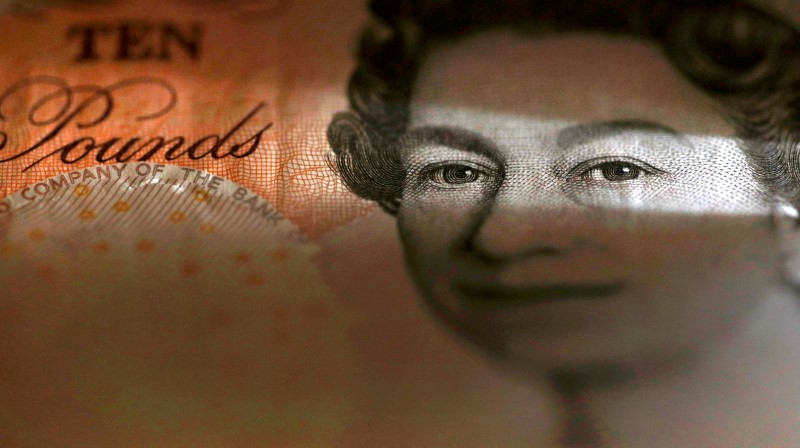By Jemima Kelly and Patrick Graham
LONDON (Reuters) - Sterling rebounded from a two-month low on Wednesday to trade back above $1.27, after Bank of England Chief Economist Andy Haldane signalled he would weigh in behind a rise in interest rates in the second half of this year.
The pound had earlier sunk beneath $1.26
But it reversed those falls as the chief economist's speech was published, trading up 0.6 percent on the day to reach as high as $1.2710. Against the euro, it rose 0.4 percent to 87.78 pence (EURGBP=D3).
Haldane's comments ran contrary to those of Governor Mark Carney, who had driven the pound lower on Tuesday by saying "now was not the time" to begin to raise rates.
Bets on a rate hike within the next year surged. Short sterling contracts for December reversed all of their gains since Carney's speech, showing markets pricing in a greater than 50 percent chance of the Bank raising rates by then.
British gilt futures
"Here are some hawkish comments that are causing the market short end of the rates market to reprice, and to price a greater probability of tightening, and sterling is responding to that," said Barclays (LON:BARC) currency strategist Hamish Pepper, in London.
"There was a period of time in which it was all about politics for the currency – how big the political risk premium should be and so on – but for a while now we’ve been trading more like a normal currency, where data surprises and central bank rhetoric drives the normal kinds of reactions."
Pepper added that the market - and Barclays - had thought it very unlikely that the BoE would be raising rates any time soon.
The UK's blue chip FTSE 100 (FTSE), which tends to fall as sterling rises because most of its multinational constituents earn in foreign currencies, hit a session low after the comments and was last down 0.5 pct.
The Queen's Speech, which featured promises from the prime minister to listen more closely to businesses' concerns about Britain leaving the European Union, appeared to have little impact on the currency, which has fallen around 15 percent against the dollar since the vote for Brexit a year ago.
At a time of unprecedented political uncertainty, May is under increasing pressure to secure a deal with Northern Ireland's Democratic Unionist Party (DUP) to prop up her government after nearly two weeks of talks.

"The only situation where I could see massive downside (for sterling) materialising is if the government collapses or Labour (the left-wing opposition party) gets the chance to form a government," said Stephen Gallo, head of European FX strategy with Bank of Montreal in London.